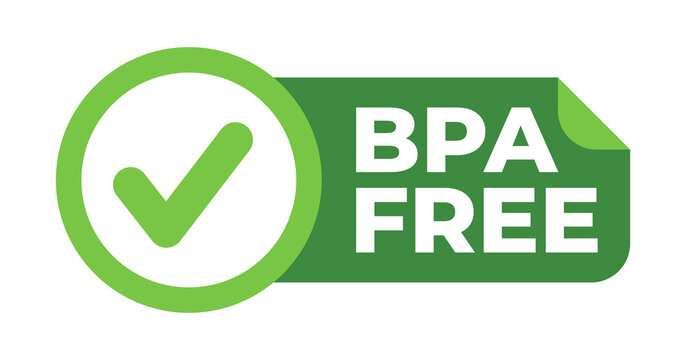Navigating Amazon’s Word Restrictions: Essential Tips for Crafting Your Product Listings
In category: Articles
Selling on Amazon comes with a myriad of rules, especially regarding the language you use in your product listings. Beyond avoiding trademarked terms, Amazon increasingly enforces guidelines to prevent misleading or misrepresentative language. This vigilance includes words related to health claims, environmental benefits, and safety assurances, among others.
While Amazon provides some guidance on restricted terms, their resources are not exhaustive. This means sellers often face challenges in understanding why a listing might be flagged or removed. In this article, we’ll explore some of the most common words and phrases that can lead to Amazon suppressing or blocking your listing, and offer tips on how to navigate these restrictions effectively.
Understanding Amazon’s Language Restrictions
Amazon’s word restrictions are closely aligned with Federal Trade Commission (FTC) regulations, which aim to protect consumers from deceptive marketing practices. Amazon also imposes additional rules to minimize their own regulatory burdens. Ignoring these guidelines can lead to your listing being suppressed, meaning it won’t appear in searches as prominently, or even removed entirely.
Amazon employs automated systems to enforce these rules, scanning listings for prohibited words and phrases. These bots lack the ability to understand context, so even innocuous uses of certain words can trigger penalties. Sellers must therefore be cautious and well-informed about the terms they use.

Key Categories of Restricted Words
Environmental Claims
Amazon’s guidelines for environmental claims are stringent and adhere closely to the FTC’s Green Guides. Broad and general claims about a product’s environmental benefits are prohibited. Instead, any claims must be specific and clearly stated. For example, saying a product is made from “20% recycled materials” is acceptable, whereas vague terms like “eco-friendly” are not.
It’s also crucial to specify which part of the product the environmental claim pertains to. For instance, is it the bottle cap that’s recyclable, or the entire product? Additionally, sellers must be aware of state-specific regulations, such as California’s prohibition on labeling plastic products as “biodegradable.”
Words to Avoid:
- Environmentally-friendly
- Earth-friendly
- Eco-friendly
- Green
- Recyclable (without specifics)
- Biodegradable
Pesticide-Related Terms
Due to increased regulation, especially following the COVID-19 pandemic, Amazon enforces strict controls on pesticide-related language. Terms like “antimicrobial” and “antibacterial” are heavily regulated and require compliance with U.S. Environmental Protection Agency (EPA) standards and the Federal Insecticide, Fungicide, and Rodenticide Act (FIFRA).
Words to Avoid:
- Antimicrobial
- Antifungal
- Antibacterial
- Microbe
- Microbial
- Insecticide
- Pesticide
- Insect
- Pest
- Repellent
- Repel
- Antiseptic
- Germ
- Virus
- Bacteria / Bacterial
- Fungus / Fungal
- Mold
- Mildew
Safety Claims
Avoid making direct safety claims about your product. Words suggesting absolute safety, such as “non-toxic” or “harmless,” can be misleading since you cannot account for every user’s unique situation or potential misuse of the product. Amazon’s bots will flag listings that use these terms, even if they are used in a descriptive context.
Words to Avoid:
- Safe
- Non-poisonous
- Non-injurious
- Harmless
- Non-toxic
- All Natural
- BPA-Free (unless substantiated)

Additional Restricted Words and Phrases
Origin Claims: Claims like “Made in the U.S.A.” should only be used if most or all of the product is produced domestically. Misleading origin claims can lead to listing removal.
Guarantees: Terms like “Satisfaction Guaranteed” or “Money-Back Guarantee” are allowed, but you must be prepared to honor these guarantees fully. Ensure your policies are clear and enforceable.
Cultural References: Avoid implying cultural authenticity, such as labeling a product as “Native American” or “Indian,” unless it genuinely fits that description.
FDA Claims: Any claims of being “FDA Approved” or “FDA Cleared” must be verifiable with proper documentation.
Prohibited Product References: Some product references, like CBD, can get your listing flagged regardless of context.
Time-Sensitive Language: Phrases like “Buy 1 Get 1 Free” or “This Weekend Only” can lead to suppression as they imply urgency, which Amazon often restricts.
User-Generated Content: Including reviews, quotes, or testimonials in your product listing can also lead to problems. Avoid obscene or offensive language entirely.
Best Practices for Compliance
- Regular Audits: Routinely review your product listings for compliance with Amazon’s guidelines. This includes both the front-end content visible to customers and back-end metadata.
- Documentation Ready: If your listing makes any claims, ensure you have the necessary documentation to back them up. This could include scientific studies, certifications, or other expert verifications.
- Stay Updated: Amazon’s guidelines and enforcement strategies can change. Stay informed about the latest rules to avoid unexpected penalties.
- Consult Experts: When in doubt, consult with professionals who specialize in Amazon compliance. They can provide valuable insights and help you navigate complex regulations.
Conclusion: Staying Ahead of Amazon’s Compliance Game
Crafting an effective and compliant Amazon product listing requires a careful balance of marketing appeal and adherence to strict guidelines. By understanding and avoiding restricted words and phrases, you can protect your listings from suppression or removal, ensuring they remain visible and effective.
Regular audits and staying informed about both Amazon and FTC guidelines will help you navigate these challenges. Remember, while using certain terms might seem tempting for the potential boost in appeal, the risks often outweigh the benefits. When your listing is flagged, even if you provide the required proof, the validation process can take time, leading to lost sales and momentum.
By prioritizing compliance and strategic wording, you can create listings that not only attract customers but also stand up to Amazon’s rigorous standards. This approach ensures a smooth selling experience and helps build a trustworthy, long-term presence on the platform.